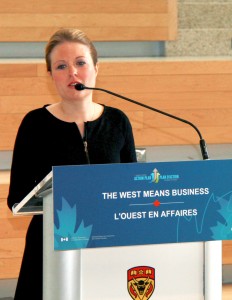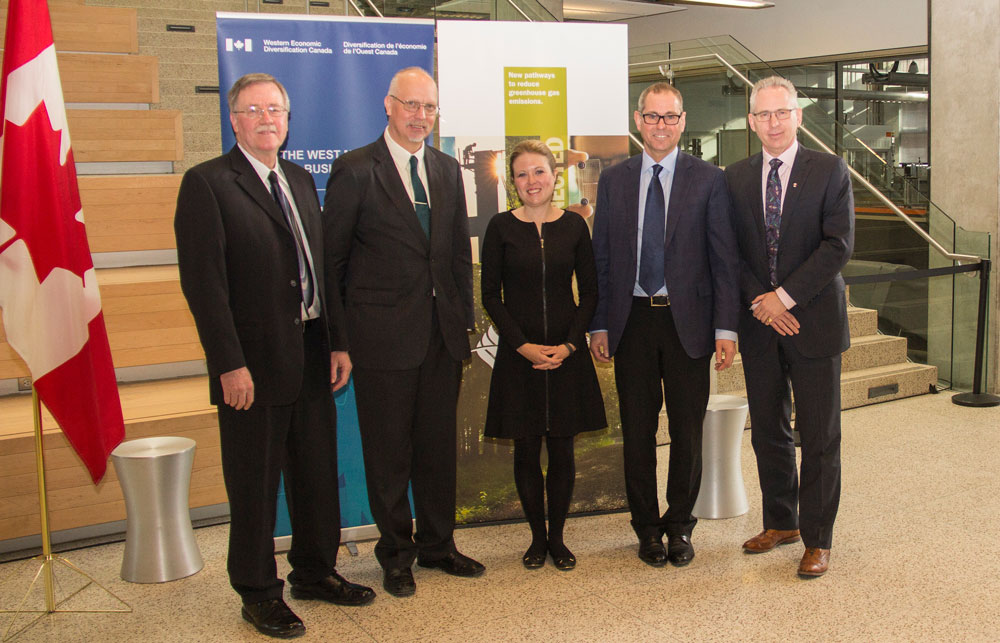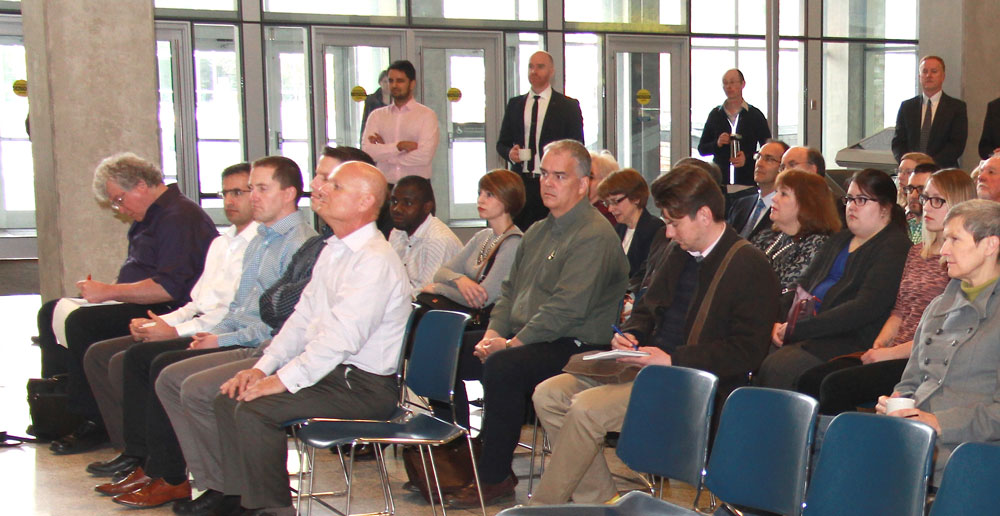A unique field research station to accelerate the development and deployment of technologies to monitor and verify secure underground storage of carbon dioxide (CO2) is being supported with a $4.9 million investment by the federal government.
Minister of State for Western Economic Diversification Michelle Rempel announced the investment to fund the CMC Research Institutes (CMC) project which, with support from the University of Calgary, Cenovus and Schlumberger, is constructing the facility located southwest of Brooks, AB. When completed in early 2016 the field research station (FRS) will be the first of its kind in the world with injection of small volumes of CO2 at an intermediate depth, simulating release into a subcritical geological horizon. The project will help lower the cost of carbon capture and storage (CCS) projects for reducing Western Canadian industrial greenhouse gas emissions, particularly in the energy sector, and to accelerate commercialization opportunities in international markets.
Canada a global leader in CCS
Minister Rempel noted that Canada is a global leader in CCS technology and said since 2008, the Government of Canada has committed over $580 million to CCS technology research development and demonstration initiatives.
“Our Government is committed to reducing greenhouse gas emissions, while generating jobs and promoting economic growth. This world-class field testing site will enhance CO2 storage, helping international climate change efforts and increasing the overall competitiveness of Canada’s energy industry,” she said.
Don Lawton, Professor of Geophysics at the University of Calgary and Director of CMC’s Containment and Monitoring Institute, says the Government of Canada funds will enable the successful completion of the site. The grant will be used to purchase advanced equipment, assist with well and infrastructure construction, and to acquire a specialized mobile geochemistry laboratory for water and gas sampling at field sites.
“We are very excited by this announcement and what it means for the advancement of carbon storage technologies in Canada. Once operational, the FRS will secure the country’s role as a major contributor in the development of performance validation, verification and monitoring technologies,” said Lawton.
Site opens new avenues for collaboration
The research station opens new avenues of exploration and collaboration for researchers and technology developers from Canada and around the world. “The FRS is strongly affiliated with the University of Calgary and will have many opportunities for University of Calgary researchers, with effective collaborations already undertaken with the CREWES project and the geochemistry group in the Department of Geoscience,” said Lawton, referring to the Consortium for Research in Elastic Wave Exploration Seismology (CREWES) project at the U of C.
Vice-President Research Ed McCauley said the field research station is a valuable research resource for faculty working in the area of carbon storage and as a training facility for students. “The University of Calgary is pleased to support CMC Research Institutes in the creation of the Field Research Station. Carbon capture and storage is identified as a key area of investigation in our Energy Research Strategy, and the field station will facilitate significant research and training opportunities for our scholars and students. This collaborative venture represents the potential for transformative changes in the energy industry,” said McCauley.
FRS attracting international attention
Richard Adamson, CMC’s Managing Director, welcomed the federal investment in the field research station and said the move would significantly enhance the ability of Canada to contribute to the international transformation to a low carbon economy.
“Our unique field research station is attracting technology developers, researchers, SMEs and regulators from Canada and around the world. We are excited to work with these groups to advance the solutions for the measurement and monitoring of stored carbon dioxide and other fluids underground.”
To learn more about the station and ways to participate in research programs contact Don Lawton at Don.Lawton@cmcghg.com



